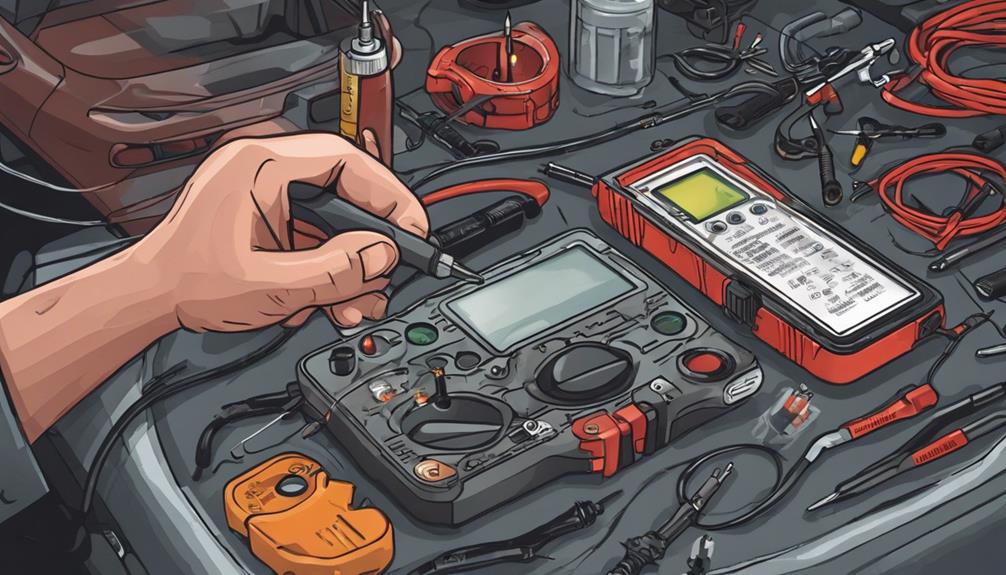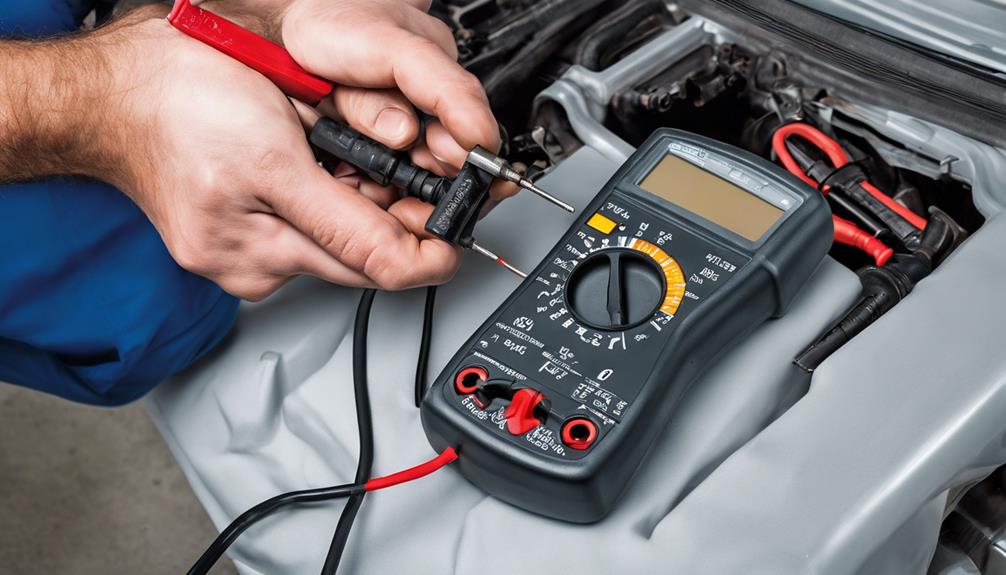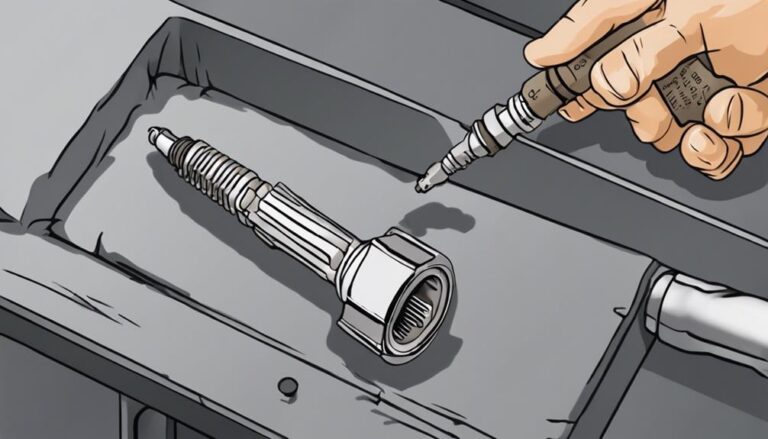Mastering Spark Plug and Ignition Coil Diagnostics
When it comes to mastering Spark Plug and Ignition Coil Diagnostics, you need to approach it methodically and with precision. Understanding the intricacies of spark plug functionality and ignition coil health is just the beginning.
But what happens when symptoms point to a potential issue? How do you decipher these clues and effectively troubleshoot common ignition problems?
Dive into the world of diagnosing spark plugs and ignition coils, where the right knowledge can make all the difference in your vehicle's performance and longevity.
Key Takeaways
- Proper spark plug gaps optimize combustion efficiency and prevent strain on ignition coils.
- Regular testing and replacement of ignition coils are vital for engine health and performance.
- Analyzing spark plug conditions aids in diagnosing fuel mixture issues and engine performance.
- Utilizing diagnostic tools ensures accurate testing of ignition coils for optimal troubleshooting and maintenance.
Understanding Spark Plug Functionality
Understanding the functionality of spark plugs involves grasping their critical role in igniting the air-fuel mixture within the combustion chamber. The spark plug gap, which is the distance between the center and ground electrodes, plays a crucial role in determining the voltage required for ignition. A correct spark plug gap ensures that the ignition system can deliver the necessary voltage to create a spark across the electrodes, initiating combustion. If the gap is too wide, a higher voltage ignition may be necessary, potentially straining the ignition coil. Conversely, a gap that's too narrow mightn't require enough voltage for a strong spark, leading to incomplete combustion.
Ensuring the spark plug gap is within the manufacturer's specified range is vital for optimal engine performance. Regularly checking and adjusting the spark plug gap can prevent issues such as misfires, poor fuel economy, and engine hesitation. By maintaining the correct spark plug gap, you can help guarantee efficient combustion and smooth engine operation.
Importance of Ignition Coil Health
Ensuring the health of your ignition coil is paramount for maintaining optimal engine performance and fuel efficiency. Ignition coils play a critical role in the ignition system by transforming the low voltage from the battery into the high voltage needed to spark the spark plugs.
Faulty ignition coils can lead to engine misfires, stalling, and decreased power output. To prevent these issues, regular testing of ignition coils through coil resistance testing is essential. This diagnostic procedure helps identify any potential problems with the ignition coil's electrical resistance, allowing for timely intervention before more significant issues arise.
Additionally, proactive maintenance, such as timely coil pack replacement when necessary, can extend the longevity of the ignition system, ensuring reliable vehicle operation. Ignoring ignition coil health can trigger the check engine light, increase harmful emissions, and result in costly repairs. Therefore, staying vigilant about the health of your ignition coil is key to a well-functioning engine and efficient fuel consumption.
Interpreting Spark Plug Conditions

To maintain optimal engine performance and fuel efficiency, analyzing spark plug conditions is crucial for diagnosing potential engine issues. Color analysis of spark plugs can offer valuable insights into the combustion process. For instance, a white coloration may indicate a lean fuel mixture, while a black appearance suggests a rich mixture.
By inspecting the electrode wear patterns on spark plugs, you can gather essential information about engine performance and the health of the ignition system. Deposits on spark plugs, such as carbon buildup or ash, serve as indicators of fuel quality and combustion efficiency.
Careful examination of these factors is essential for understanding the overall health of your engine. By interpreting spark plug conditions accurately, you can optimize engine performance, fuel efficiency, and vehicle reliability. Stay vigilant in monitoring your spark plugs as they provide valuable clues that can help you address potential issues promptly and keep your engine running smoothly.
Diagnostic Tools for Ignition Coils
For precise diagnosis of ignition coil functionality, employing specialized tools is imperative to maintain optimal engine performance. Diagnostic tools such as inline ignition testers, ignition spark testers, COP or coil-on-plug testers, oscilloscopes, and multimeters designed for resistance testing play a crucial role in ensuring the ignition system's proper operation.
Multimeters are particularly useful for measuring resistance values in the primary circuit against manufacturer specifications, aiding in effective diagnosis. Inline ignition testers assist in spark testing to verify the electricity supply to the spark plug is sufficient. By utilizing these tools, technicians can accurately test both the primary and secondary circuits of the ignition coil, allowing them to identify any potential issues promptly.
Investing in and utilizing proper diagnostic tools is essential for maintaining the efficiency of the ignition system and preventing any ignition coil-related problems that could impact engine performance.
Troubleshooting Common Ignition Issues

When troubleshooting common ignition issues, start by identifying the symptoms and conducting thorough diagnostic tests to pinpoint the root cause accurately. Common signs of ignition coil problems include vehicle stalling, engine misfires, reduced fuel efficiency, and an illuminated check engine light.
During testing, pay attention to indicators like orange sparks or a lack of spark, as these can signal faulty ignition coils. It's essential to test coil resistance using an ohmmeter according to the manufacturer's specifications. Comparing the measured resistance to the recommended values is crucial for precise diagnosis. Ensure that any replacement parts have the correct resistance values to guarantee optimal ignition system performance.
Frequently Asked Questions
How Do I Know if My Spark Plug or Ignition Coil Is Bad?
To determine if your spark plug or ignition coil is bad, visually inspect for signs like misfires or rough idling. Symptoms may include difficulty starting, stalling, decreased fuel efficiency, or a strong fuel smell. Conduct resistance testing and voltage drop checks for accurate diagnosis.
Can You Test an Ignition Coil With a Spark Plug Tester?
Yes, you can test an ignition coil with a spark plug tester. It quickly assesses spark output, revealing any weaknesses. This method efficiently gauges the coil's functionality without extensive disassembly. It's a simple and effective way to confirm ignition coil performance.
Can OBD2 Detect Bad Ignition Coil?
Yes, OBD2 can detect a bad ignition coil by revealing specific trouble codes like P0352. However, be mindful of OBD2 limitations as symptoms may be misdiagnosed. Utilize real-time data for accurate troubleshooting.
What Should I Set My Multimeter to Check Ignition Coil?
To check the ignition coil, set your multimeter to ohms for accurate resistance readings. Avoid voltage or current settings. Disconnect the coil from the vehicle first. Use manual range or auto feature for precise troubleshooting.
Conclusion
In mastering spark plug and ignition coil diagnostics, you hold the key to unlocking your vehicle's peak performance. By delving into the intricacies of spark plug functionality and the importance of ignition coil health, you equip yourself with the tools needed to troubleshoot common ignition issues.
With diagnostic tools in hand, you navigate the complexities of engine misfires and fuel inefficiency like a skilled conductor orchestrating a symphony of precision. Stay vigilant, stay informed, and watch your vehicle soar to new heights.







